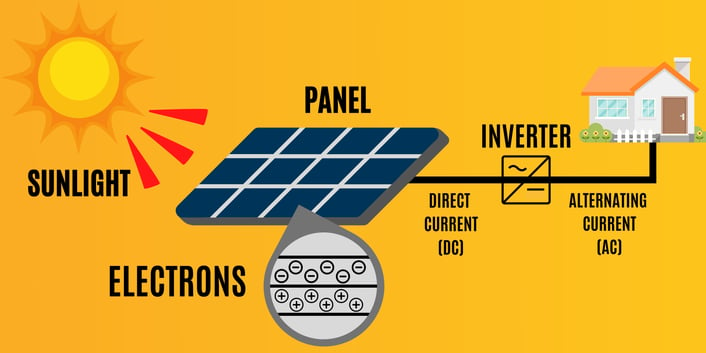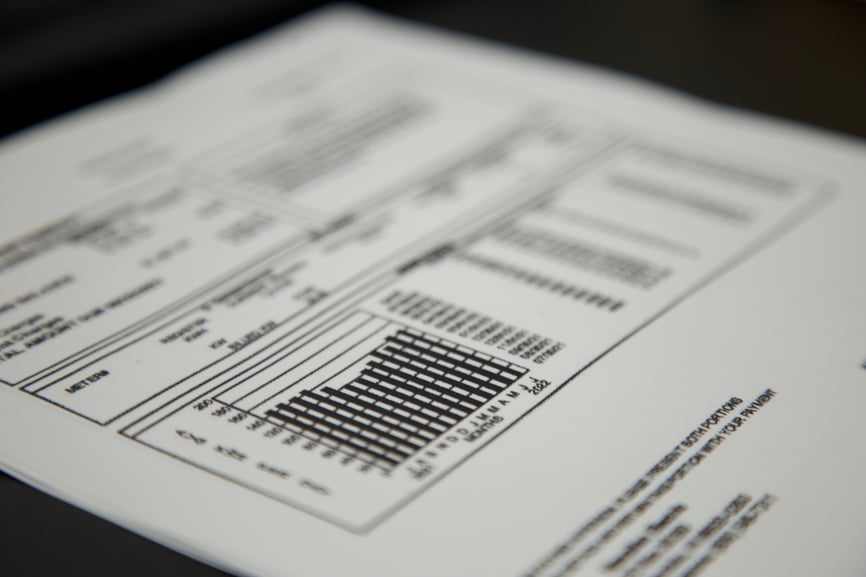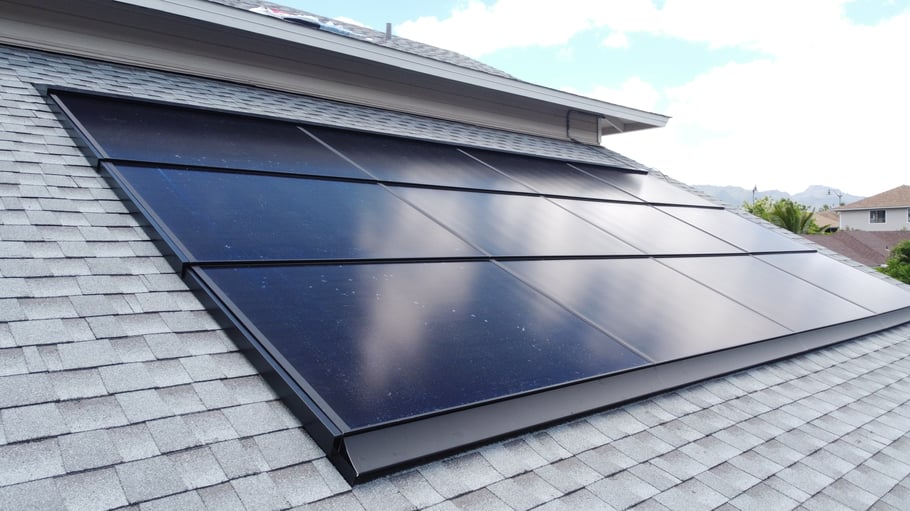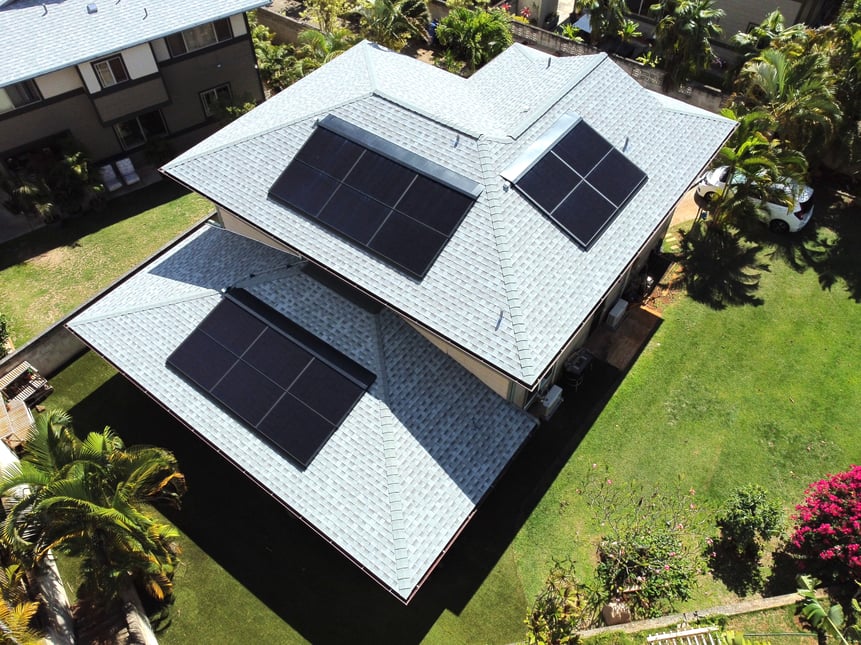Solar Energy In Hawaii
- Why Solar Energy?
- How Do P.V. Solar Panels Work?
- Go Green and Get A Return On Your Investment
- Factors That Affect Your PV System
- Maintaining Your Solar System
Why Solar Energy?
Solar energy is a clean, renewable, and abundant source of power that is gaining popularity as a means of generating electricity for homes and businesses. In Hawaii, where the sun shines brightly for most of the year, solar energy can be an attractive option. Not only does it offer a number of environmental benefits, but it can also provide significant savings in electricity costs.
Installing a photovoltaic solar system on your home in Hawaii can help reduce your reliance on fossil fuels and lower your carbon footprint. Solar panels convert sunlight into electricity, which can be used to power your home and even sell excess energy back to the grid. In addition to the environmental benefits, solar energy can also save you money on your monthly electricity bills.
The initial cost of installation may seem steep, but with the right incentives and financing options, the payback period can be relatively short. As electricity prices continue to rise, the need for solar energy becomes more attractive.
How Do P.V. Solar Panels Work?
Photovoltaic (P.V.) solar panels are designed to capture sunlight and convert it into electricity that can be used to power homes and businesses. The process of converting sunlight into electricity is known as the photovoltaic effect. When sunlight hits the panels, it excites the electrons in the solar cells, causing them to flow and generate a direct current (DC) of electricity. This DC electricity is then sent to an inverter, which converts it into alternating current (AC) electricity that is compatible with the electrical grid.

A photovoltaic solar panel system consists of several components, including solar panels, an inverter, a meter, and a battery bank (in some cases). The solar panels are made up of solar cells that are connected together and encased in a protective layer.
The inverter converts the DC electricity produced by the panels into AC electricity that can be used in your home. The meter measures the amount of electricity being produced by the panels and consumed by your home. In some systems, a battery bank is used to store excess energy for use when the panels are not producing enough electricity, such as at night or on cloudy days.
Go Green and Get a Return on Your Investment
The initial cost of installing a photovoltaic solar panel system on your home in Hawaii can vary significantly depending on the size of the system and the specific components you choose. On average, the cost of installing a solar panel system in Hawaii ranges from around $15,000 to $30,000, with the average cost being around $25,000. However, this initial investment can be offset by the savings you will see on your electricity bills.
In Hawaii, electricity prices are among the highest in the country, making solar energy a particularly attractive option for reducing energy costs.

There are several federal and state incentives available in Hawaii that can help offset the initial cost of installing a solar panel system. The Federal Investment Tax Credit (ITC) allows homeowners to claim a credit on their federal tax return for a portion of the cost of installing a solar panel system.
In addition, Hawaii offers a state tax credit and a net metering program that allows homeowners to sell excess energy back to the grid.
These incentives can significantly reduce the payback period of a solar panel system, making it a more financially viable option. On average, the payback period for a solar panel system in Hawaii is around 5-7 years, depending on the size of the system and the specific incentives available.
Factors that Affect Your PV System
The size of the solar panel system you install on your home in Hawaii can have a significant impact on the overall efficiency and effectiveness of the panels.
A larger system will generally produce more electricity, which can result in greater cost savings on your monthly electricity bills. However, it is important to keep in mind that the initial cost of a larger system will also be higher. Carefully assess your energy needs and budget before deciding on the size of the system that is right for you.

The orientation and angle of the solar panels can also affect their performance. In Hawaii, panels should be oriented towards the south to maximize their exposure to the sun. The angle at which the panels are installed can also impact their performance. In general, a steeper angle will result in more efficient panels, but this may not be practical in all cases.
It is important to work with a professional to determine the optimal orientation and angle for your solar panels.
Shade on your property can also have an impact on the performance of your solar panels. If the panels are shaded, they will not receive as much direct sunlight and will therefore produce less electricity.
It is important to carefully assess the amount of shade on your property and take steps to minimize it if possible. This may involve trimming trees or installing panels on a part of the property that receives more direct sunlight.
Lifespan of Solar P.V. System
The expected lifespan of solar panels in Hawaii is around 25-30 years. However, this can vary depending on factors such as the quality of the panels and the conditions in which they are installed. With proper care and maintenance, it is possible to extend the lifespan of your solar panels beyond this point.
Proper care and maintenance of your solar panels in Hawaii can help ensure that they continue to operate at peak efficiency for as long as possible. Here are a few tips for caring for your solar panels:
- Keep the panels clean: Dust, dirt, and debris can accumulate on the panels over time, which can reduce their efficiency. To keep the panels clean, you can use a soft, dry cloth to wipe them down. Avoid using any harsh chemicals or abrasive materials, as these could damage the panels.
- Check for damage: Periodically inspect the panels for any signs of damage, such as cracks or dents. If you notice any damage, it is important to have it repaired as soon as possible to prevent further damage to the panels.
- Keep an eye on the inverter: The inverter is an important component of your solar panel system, as it converts the DC electricity produced by the panels into AC electricity that can be used in your home. If you notice any problems with the inverter, such as a flickering display or an error message, it is important to have it checked by a professional.

Final Thoughts
In conclusion, installing a photovoltaic (PV) solar system on your home in Hawaii can provide significant financial and environmental benefits. Solar energy is a clean, renewable, and abundant source of power that can help reduce your reliance on fossil fuels and lower your carbon footprint.
In addition, solar energy can save you money on your monthly electricity bills, particularly in Hawaii where electricity prices are among the highest in the country.
While the initial cost of installation may seem steep, there are a number of federal and state incentives available that can help offset the cost. It is important to carefully consider the return on investment before making the decision to install a solar panel system, as this will help ensure that the financial benefits outweigh the initial cost of installation.
%20(2).png?width=150&height=107&name=Solar%20Logo%20(No%20Background)%20(2).png)
Comments